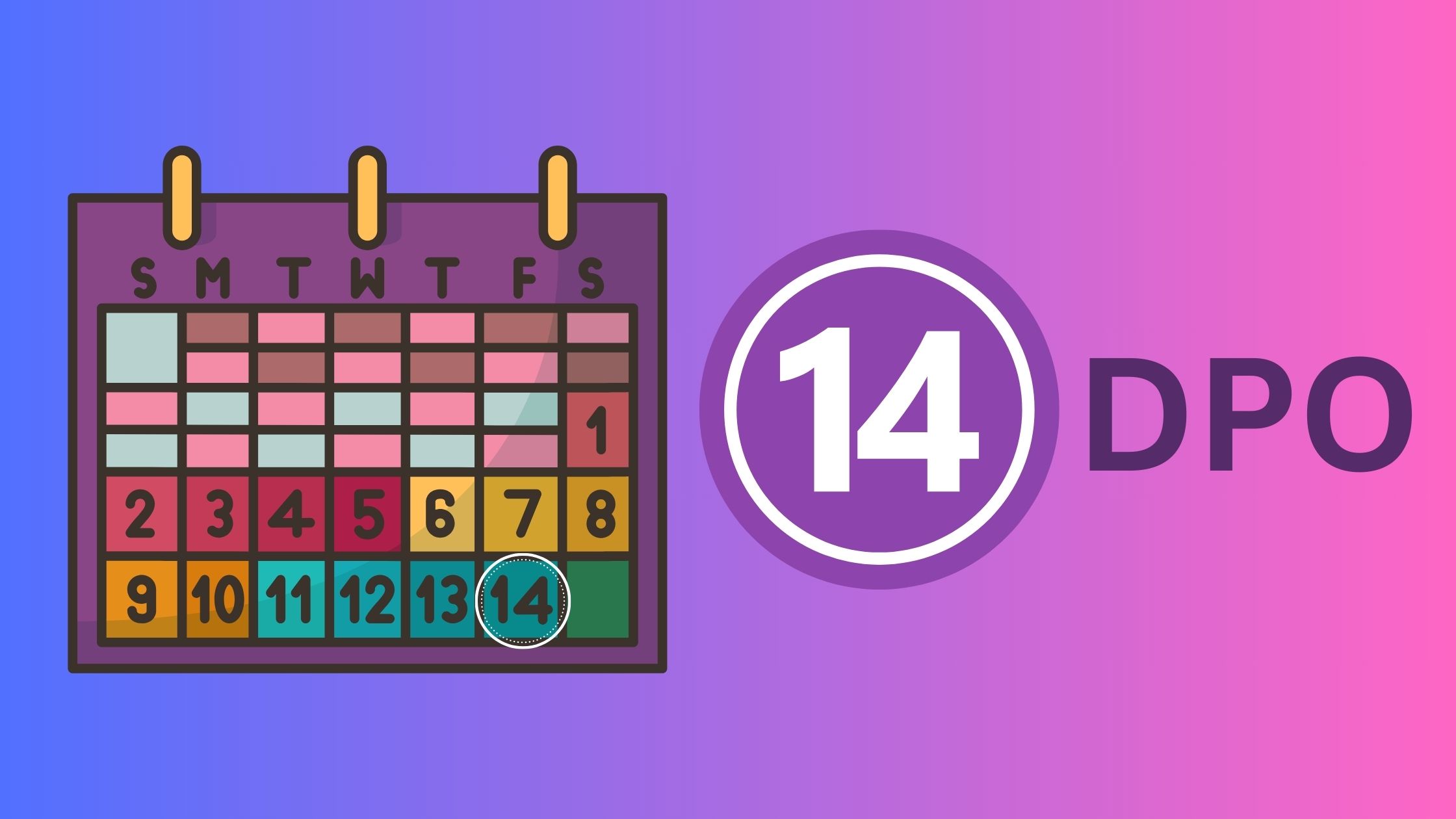Ah, the 14 DPO mark! If you’re on the journey to conceive, reaching 14 days past ovulation (DPO) can feel like you’ve been waiting forever, with each day feeling like an eternity. Here’s the silver lining: you’re on the brink of getting some clear answers. Whether you’re a newbie to the two-week wait (TWW) or you’ve been down this road before, this is a pivotal moment.
You might wonder, “What signs should I look out for?” Well, some folks might start feeling early pregnancy symptoms, while others might not feel a thing. It’s a mixed bag. But if you’ve been keeping an eagle eye on those symptoms, this is the time they might start to show up.
And then there’s the big question: “Is it too soon to take a pregnancy test?” The good news is, by 14 DPO, your chances of getting an accurate result are higher than if you’d tested earlier. So, if you’ve been playing the waiting game and are itching to take that test, you’re in luck. Your wait might just be about to pay off.
Whether you’re anticipating your period or hoping for a baby, this stage is filled with anticipation. But remember, every person’s journey is unique. So, while you might be eager for answers, staying patient and in tune with your body is essential. And if you’re feeling anxious, know that understanding what to expect can be a real game-changer. So, fingers crossed, and here’s hoping you get the news you’re waiting for!
For those eagerly awaiting a positive pregnancy sign, 14 DPO (days past ovulation) is your moment of truth. Join us as we decode the tell-tale early pregnancy signs just 2 weeks post-ovulation. Let’s uncover the secrets to spotting those early pregnancy symptoms and ensure your pregnancy tests hit the mark!
What is 14 DPO?
14 DPO is crucial in a woman’s menstrual cycle. Pregnancy hormone levels surge, potentially leading to the onset of pregnancy symptoms. Meanwhile, the fertilized egg journeys from the fallopian tube, settling into the uterine lining for implantation.
A positive pregnancy test result might be on the horizon at 14 DPO. If menstruation hasn’t kicked in by this time, it could hint at a budding conception. However, a negative pregnancy test result around this time doesn’t shut the door on pregnancy. The human chorionic gonadotropin hormone (hCG) might not have reached detectable levels yet, so there’s still a chance for a positive test with subsequent tries.
What’s Happening in Your Body at 14 DPO?
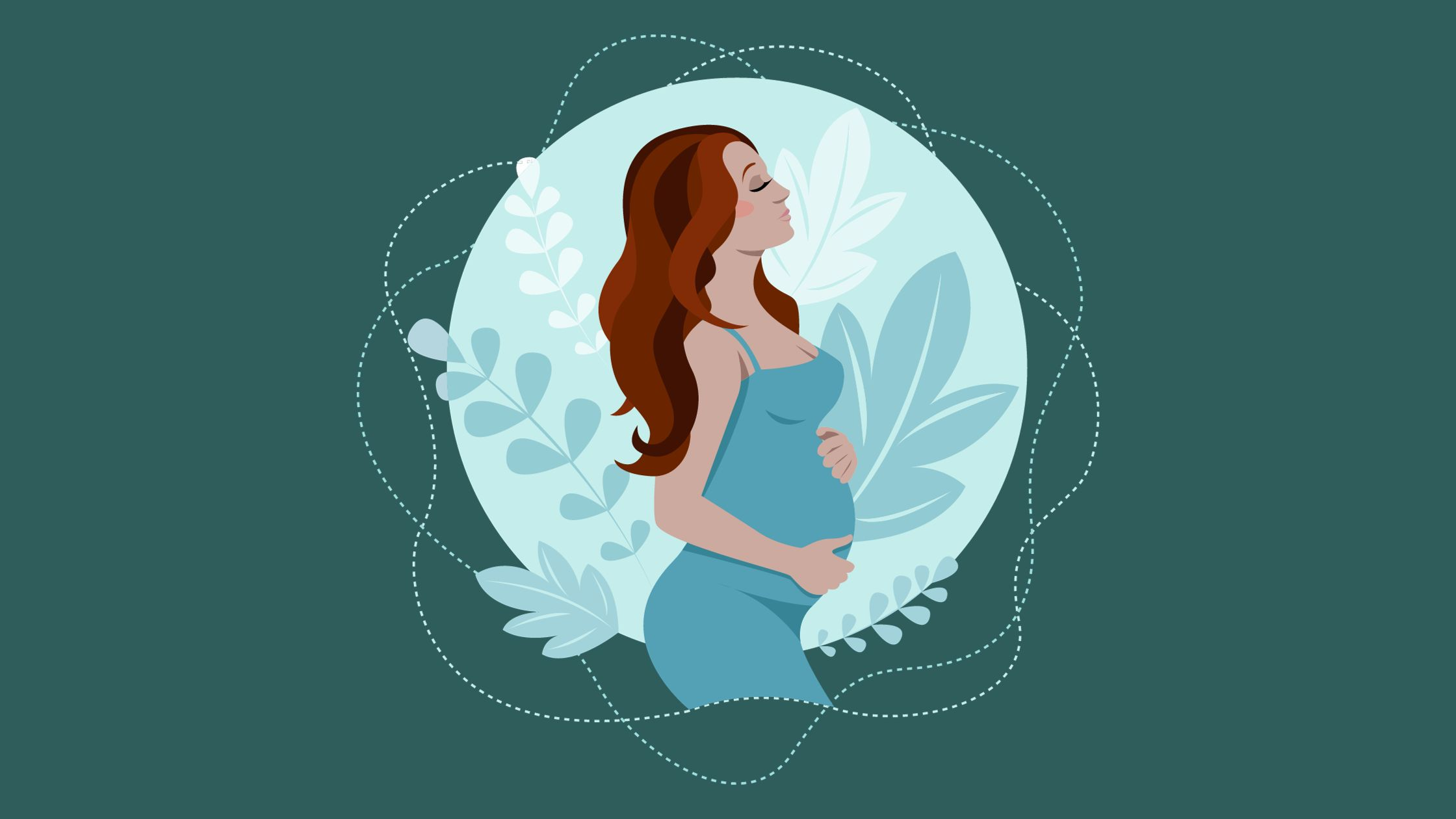
14 DPO indicates that you ovulated two weeks ago, marking the beginning of your luteal phase. This phase begins the day following ovulation and concludes the day before your menstrual cycle starts.
During this period, the egg travels down your fallopian tube while the uterus lining becomes denser, preparing for a potential pregnancy.
If the egg is fertilized by a sperm, by the 14th day past ovulation, it might have attached itself to the lining of your uterus. This event initiates hormonal shifts that might lead to early signs of pregnancy.
You might experience symptoms like cramps, light bleeding, tiredness, or feelings of nausea. We’ll explore the signs associated with 14 DPO in more detail below.
Common Pregnancy Symptoms at 14 DPO
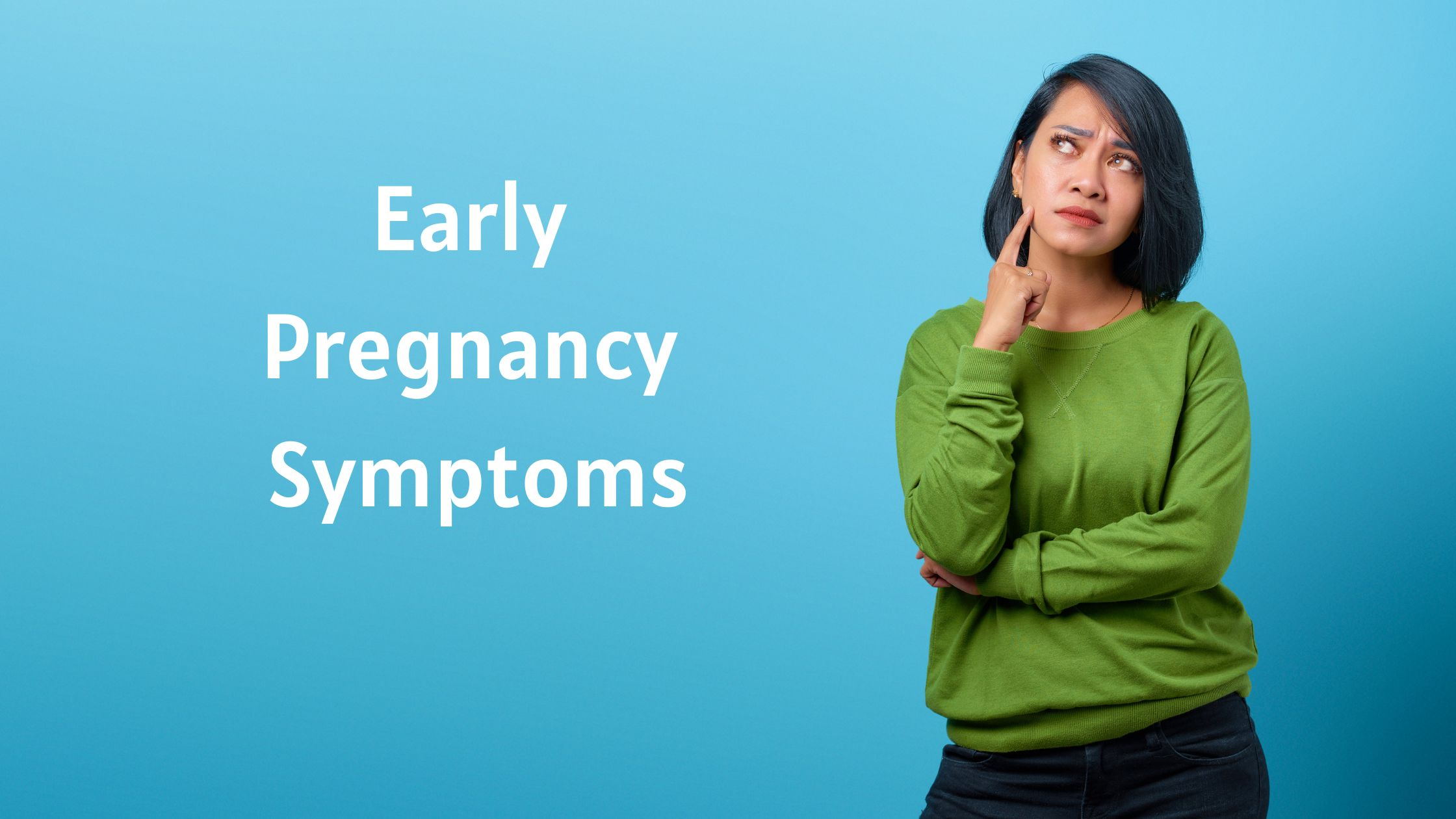
At 14 DPO, many women experience typical pregnancy signs. These can range from fatigue, nausea, and breast tenderness to implantation cramping, implantation bleeding, frequent urination, cravings for certain foods or mood changes, and digestive difficulties. It’s worth noting that every woman is unique. Some may not exhibit all of these symptoms during this period.
1. Fatigue and Exhaustion
Many women experience exhaustion and fatigue during early pregnancy due to increased progesterone hormone levels and more blood production for sustaining their growing fetus. As a result, your body has to work hard, which often makes you feel tired all day.
To fight this drowsiness during maternity, pregnant mothers must consume iron-rich foods full of protein while staying adequately hydrated, plus getting enough rest whenever possible.
2. Nausea and Morning Sickness
Around 70% of expecting mothers suffer nausea, often caused by a sudden rise in progesterone levels. Morning sickness may occur at any point throughout the day. Regular small and easy-to-digest meals might help lessen these symptoms during pregnancy.
3. Breast Tenderness and Swelling
At 14 DPO, pregnancy symptoms such as swollen and tender breasts are common. This is caused by hormone changes that occur during the initial stages of pregnancy, which increase progesterone levels. The sensitivity of your breasts will heighten, leading to swelling and darkening nipples/areolas. This should decrease once your body becomes accustomed to these hormonal modifications.
4. Implantation Cramping
When an egg attaches to the lining of your uterus, you might experience some mild abdominal discomfort known as implantation cramps. These cramps, which can occur around 14 DPO, might indicate the beginning of a pregnancy. “Sometimes, implantation cramping can be accompanied by implantation bleeding, or it might present as a standalone symptom.”
How do they differ from regular menstrual cramps? Implantation cramps often feel like a gentle, persistent ache. Some women also describe them as feeling like a tugging, pinching, or tingling sensation. Generally, they are less intense than the cramps you might feel during your period, so that they might go unnoticed by some.
5. Implantation Bleeding
Implantation bleeding is a form of light bleeding that results when the fertilized egg implants in the uterine lining around 10 to 14 days past ovulation. It usually appears as a few drops of pink or brown blood. It’s lighter than what one would typically experience during their period. To differentiate between implantation and regular menstrual flow, it’s important to note its shorter duration and less heavy than an actual period.
6. Frequent Urination
If you’ve been dashing to the bathroom more often than usual, both day and night, you’re not alone. Blame those pregnancy hormones and the tidal wave of fluids coursing through your body. Your kidneys work like they’re on a caffeine high, flushing everything out.
And speaking of fluids, you’ve got to up your water game. Staying hydrated during pregnancy isn’t just a good idea; it’s essential. So, even if it feels like you’re on a never-ending loop between your desk and the restroom, make sure you’re guzzling down between 8 and 12 eight-ounce glasses of water daily.
7. Food Cravings
Pregnant women may experience hormonal changes around 14 DPO, leading to various food cravings and aversions. These could include chocolate, sweets, salty snacks, and spicy meals.
Although it is natural for pregnant mothers to satisfy some cravings with these foods occasionally during pregnancy, eating a balanced diet should be the priority to ensure optimal health benefits for both you and your baby.
8. Mood Swings
At 14 DPO, due to the increase in hormone levels such as progesterone, people may experience changes in their emotional state, known as mood swings. These can range from feelings of irritation and anxiousness to elation. It is essential for those experiencing this rollercoaster of emotions to be kind to themselves and get support if they need it – whether that’s from family or a healthcare professional.
9. Digestive Issues
During the early stages of pregnancy, women may experience gastrointestinal difficulties such as flatulence, constipation, and bloating. These uncomfortable pregnancy symptoms are linked to increased levels of progesterone hormones, which can slow down digestion in a woman’s body.
To counter these effects, it is suggested by healthcare professionals that pregnant women should include fiber-heavy foods in their diets, stay well hydrated, and take part in moderate exercise.
At How Many DPO Does Your Period Start?
If you’re scratching your head, wondering when the menstrual cycle will begin, you’re not alone. Typically, ovulation happens 12-14 days before your period kicks in. So, if you’re at 14 DPO, you might want to keep those tampons handy for tomorrow.
But let’s be honest, our bodies aren’t always clockwork. Menstrual cycles can range between 21 to 35 days, and for many women, it’s like rolling the dice each month due to irregular cycles. Factors like hormonal imbalances, stress, diet changes, or even certain medications can throw a wrench in the works.
While it’s tempting to jump to conclusions if your period’s fashionably late, remember there’s a host of reasons it might be delayed. Stay in tune with your body, keep tracking, and follow the flow.
Does Your Period Always Come 14 DPO?

It is important to be aware of individual patterns and understand how stress, exercise, or medication can shift the arrival date for a period. If you experience a missed period, this could signal pregnancy.
What Is The Best Time To Take a Pregnancy Test?
Taking a pregnancy test after a missed period is advised, as this allows the body to produce detectable hormones. While some pregnancy tests claim early detection, using them too soon can lead to unreliable results. Always follow the test’s guidelines and consult healthcare experts to clarify symptoms or test outcomes.
How Accurate Are Pregnancy Tests at 14 DPO?
Taking a pregnancy test at 14 DPO typically yields 90% accurate results. However, sometimes, they can produce false negatives if the hCG levels in the urine are still too low to be detected. A negative result at 14 DPO doesn’t always mean there’s no embryo developing; it might just indicate that hormone levels aren’t sufficiently elevated to register on the test. If your period has yet to start after a few more days, it’s advisable to retest.
What Should HCG Levels Be at 14 DPO?
In the initial stages, hCG typically increases by about 50 percent daily. However, while there are some common trends, everyone’s different.
If you’re at 14 DPO and curious about where your hCG should stand, it’s a mixed bag. Levels can swing anywhere from 5 to 426 mIU/mL. But remember, this is just a general yardstick. Factors like the sensitivity of your pregnancy test, when implantation happened, and the overall health of your pregnancy can all play a part.
Talking with your doctor is always good if the numbers game makes you puzzled or worried. They’ll help you make heads or tails of it and offer tailored advice. After all, when it comes to pregnancy, it’s not always one size fits all!
Is 14 DPO Too Early to Test?
If you think pregnancy is possible, waiting until after missing your period before taking the test for more reliable results at 14 DPO is recommended. Taking the test too soon can cause an inaccurate negative outcome due to hCG levels in your body not rising enough yet to be detected by the examination.
Should you receive a false-negative result when testing 14 days post ovulation and haven’t had your menstrual cycle begin yet, consider waiting several additional days before trying again if necessary.
14 DPO and Positive Pregnancy Test (BFP)
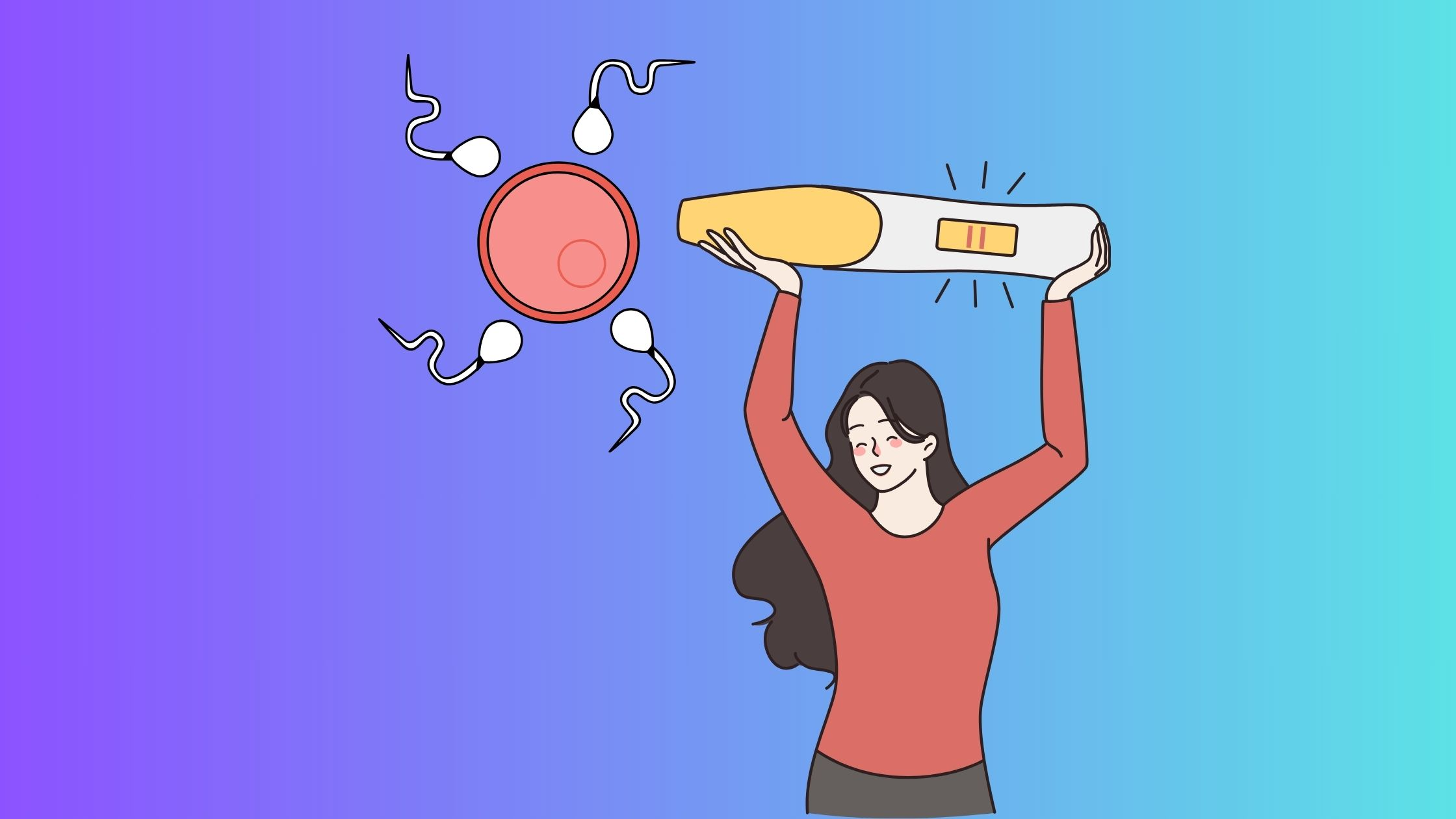
So, you’ve arrived at 14 DPO, and you’re itching to take that pregnancy test, right? You’ve been patient enough, and it’s not too early to try. While you might have enough hCG in your system by now to see that coveted positive pregnancy test result (BFP), it’s not guaranteed.
There are a few curveballs to consider. For starters, you might get a false negative if your hCG levels are not high enough. And it’s not just about the hormone levels. The quality of some home pregnancy tests can be, well, a bit iffy. Even with the FDA tightening the reins, some tests might still give you a false negative, even weeks into a pregnancy.
And don’t get us started on false positives. One heartbreaking reason could be an early pregnancy loss, where the egg gets fertilized but doesn’t implant in your uterus. Your body might still churn out enough hCG to produce a positive result. And if you’ve gone the IVF route with a synthetic hCG trigger, that lingering hCG might be the culprit behind a false positive.
If in doubt, give it a few more days before testing. Better yet, contact your healthcare provider for verification, which includes a blood test and ultrasound.
14 DPO and Negative Pregnancy Test (BFN)
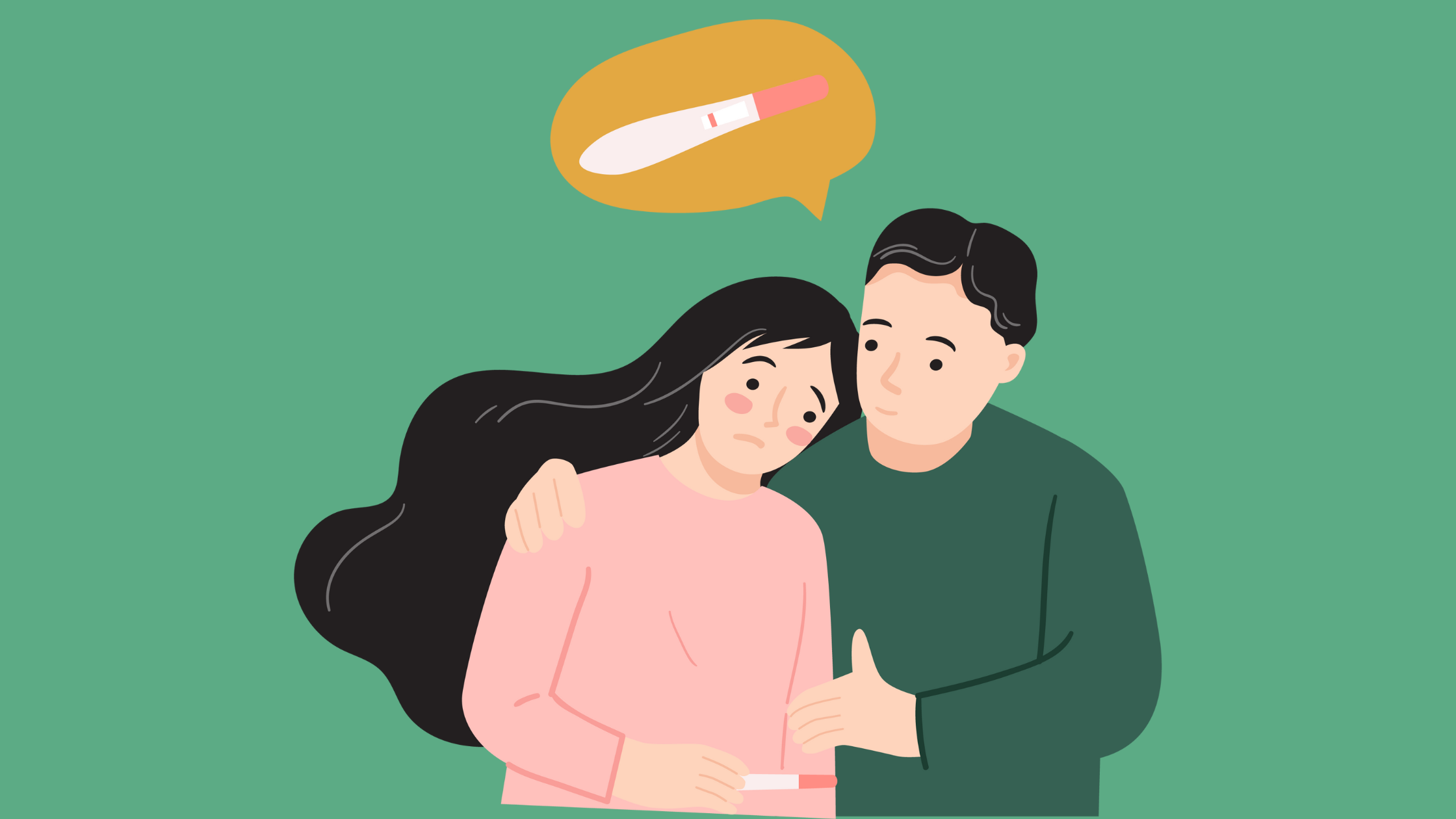
At 14 DPO, receiving a negative pregnancy test result doesn’t necessarily mean you aren’t pregnant. It’s possible that the hCG hormone levels in your body haven’t risen sufficiently to be detected by the test.
If you haven’t begun your menstrual cycle, consider taking another test in a few days. This can clarify whether the initial negative result was due to low hormone levels or if you genuinely aren’t pregnant.
What If You Don’t Have Pregnancy Symptoms at 14 DPO?
So, you’ve taken that pregnancy test at 14 DPO, and voilà, it’s positive! But hang on, you’re not feeling any tell-tale pregnancy signs like morning sickness or cravings for pickles dipped in chocolate. What’s the deal?
Well, it’s normal to be pregnant and not feel any pregnancy symptoms. Well, at least not yet. Everyone’s journey is unique. Some might start feeling the changes as early as 8 DPO, while others might be left guessing for a few more weeks.
Thanks to the HCG hormone, a subtle hint could be an uptick in cervical mucus or that faint line on your pregnancy test. But remember, pregnancy isn’t a one-size-fits-all experience.
So, even if your body’s playing it cool, trust the signs it’s giving you. As you step into this thrilling chapter, take care and remember: a home pregnancy test is your best bet to confirm what’s brewing!
Does Bleeding at 14 Days Post Ovulation Indicate Implantation or Periods?
So, you’ve reached 14 DPO, and you’re spotting. The big question on your mind: “Is this implantation bleeding or just the start of my period?” Let’s break it down.
Implantation bleeding is a light spotting when a fertilized egg nestles into your uterine lining. It’s a good sign, indicating that the egg has successfully implanted. This spotting is typically lighter than your regular period and can range from pale pink to rust brown. You may only notice it when you wipe or on a panty liner.
Implantation bleeding occurs between 10 and 14 DPO, right around the time you’d expect your period. So it’s easy to get them mixed up. But there are a few tell-tale signs to look out for. Implantation bleeding is generally lighter, might be accompanied by mild cramping, and doesn’t last as long as a regular period. Plus, you might experience other early pregnancy symptoms like tender breasts, fatigue, mood swings, and even food cravings.
Reaching 14 DPO is a big deal when you’re trying to conceive. By this time, your hCG levels are usually high enough to give you some early pregnancy symptoms. About 90% of pregnant women get positive results on their pregnancy tests at this stage. But, if you’re in doubt, a blood test is about 99% accurate at confirming pregnancy.
If you’re spotting at 14 DPO and suspect it’s implantation bleeding, it’s a hopeful sign. But remember, everyone’s body is different. Checking in with your doctor is always a good idea if you’re concerned about spotting or other symptoms. After all, it’s better to be in the know about pregnancy!
Takeaway
- 14 DPO means 14 days past ovulation.
- It marks the end of the luteal phase.
- 14 DPO is an essential stage in a woman’s menstrual cycle, where signs of pregnancy may start to appear.
- Most home pregnancy tests give accurate results at 14 DPO.
- According to one study, HCG levels vary at 14 DPO; the median level is 137 mIU/mL.
- Common symptoms at 14 DPO include fatigue, nausea, breast tenderness, implantation cramping, and implantation bleeding. While it is possible to observe differences in cervical mucus and take a faint positive test result for pregnancy confirmation.
- Some pregnant women might not show any symptoms by 14 DPO.
- A negative test at 14 DPO doesn’t rule out pregnancy. Consider retesting after a few days.
Frequently Asked Questions (FAQs)
Will a pregnancy test be positive 14 DPO?
By 14 DPO, you have a good chance of getting a positive pregnancy test result, since approximately 90 percent of pregnant individuals receive affirmative readings during this period. Testing for the presence of hCG hormones in urine can occur as early as eight DPO. It’s suggested to wait until 14 DPO for maximum precision.
What are the symptoms after 14 DPO?
At 14 days past ovulation, signs that may suggest early pregnancy could include a change in taste or smell aversion, an urge to eat certain foods, gastrointestinal changes, tiredness and nausea, commonly referred to as morning sickness.
What is the cervical mucus at 14 DPO?
At 14 DPO, high levels of hCG can cause your cervical mucus to thicken resulting in a variety of pregnancy symptoms such as fatigue, tender breasts, mild abdominal cramping and cravings for certain foods or an aversion to others.
Is 14 DPO too late for implantation?
At 14 DPO, there may not be enough time for implantation to occur since it typically happens 10-14 days after conception. Taking notice of potential signs like light spotting or subtle bleeding might suggest that implantation has taken place though. It’s important to watch if those symptoms appear, which could indicate a successful pregnancy implanting in the uterus.
References
Bustos M, et al. (2018). Nausea and vomiting of pregnancy: What's new?
https://www.ncbi.nlm.nih.gov/pmc/articles/PMC5107351/Gnoth C, et al. (2014). Strips of hope: Accuracy of home pregnancy tests and new developments.
https://www.ncbi.nlm.nih.gov/pmc/articles/PMC4119102/How much water should I drink during pregnancy? (2020).
https://www.acog.org/womens-health/experts-and-stories/ask-acog/how-much-water-should-i-drink-during-pregnancyMesen TB, et al. (2016). Progesterone and the luteal phase.
https://www.ncbi.nlm.nih.gov/pmc/articles/PMC4436586/Pregnancy — signs and symptoms. (2018).
https://www.betterhealth.vic.gov.au/health/HealthyLiving/pregnancy-signs-and-symptomsReed BG, et al. (2018). The normal menstrual cycle and the control of ovulation.
https://www.ncbi.nlm.nih.gov/books/NBK279054/What are some common signs of pregnancy? (2017).
https://www.nichd.nih.gov/health/topics/pregnancy/conditioninfo/signsWilcox AJ, Baird DD, Weinberg CR. Time of implantation of the conceptus and loss of pregnancy. N Engl J Med. 1999 Jun 10;340(23):1796-9. doi: 10.1056/NEJM199906103402304.Implantation bleeding: Common in early pregnancy? – Mayo Clinic
